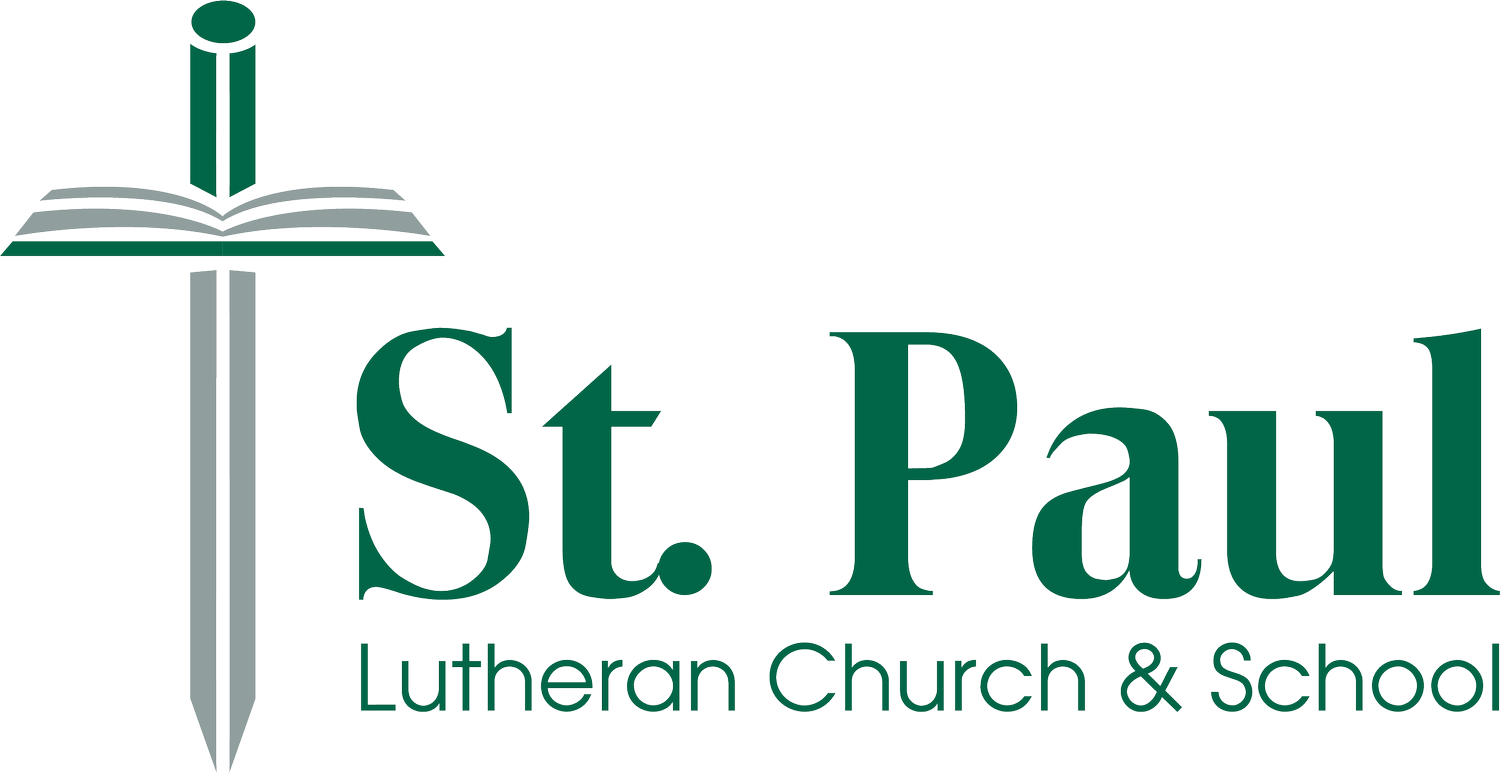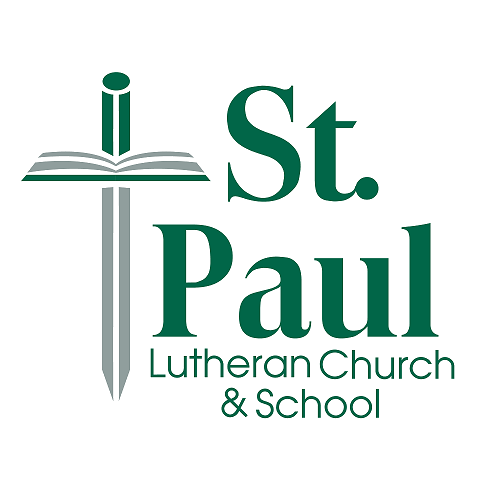What’s In a Name?
The name a group chooses for itself can say a lot about the people in that group and their mission. If you're curious about what it means for us to call ourselves St. Paul Evangelical Lutheran Church, keep reading.
St. Paul
Churches have many different kinds of names. Some are named after ideas and meaningful Bible terms, such as Grace and Peace. Others are named after places in the Bible, such as Bethlehem and Calvary. Many are named after important people from history, both those mentioned in the Bible and others who lived after the Bible was written.
The apostle Paul is one of the most common. This is not surprising when you consider that God used Paul to write about half of the New Testament. Thirteen of the twenty-seven New Testament books of the Bible are letters written by Paul to Christian congregations and individuals.
Carrying the apostle Paul’s name, we also carry his mission, which is not about preaching the greatness of Paul or ourselves or any other believer. It’s about preaching Christ crucified. It’s about giving all glory to God. It’s about sharing the good news of our Savior with all the world.
For I had no intention of knowing anything among you except Jesus Christ, and him crucified. I came to you in weakness, in fear, and with much trembling. My message and my preaching were not marked by persuasive words of human wisdom, but by a demonstration of the Spirit and of power, so that your faith would not rest on human wisdom, but on God’s power. (1 Corinthians 2:2–5)
Evangelical
The word evangelical comes from the Latin word evangelium, which comes from the Greek word euangelion (εὐαγγέλιον). An evangelium is “good news.” Good news is also the meaning of the English word gospel, and it is the gospel, the good news, of Jesus Christ that gives our congregation the Evangelical part of its identity.
Having the word Evangelical in our name shouldn’t be confused with the church movement known as Evangelicalism. The Evangelical Movement has meant many different things over the course of history and has been used by a wide range of denominations. Both terms obviously come from the same root word, but when we use the word Evangelical it isn't in connection with that movement.
So why do we call ourselves Evangelical? Because we are centered on the good news of Jesus. When we come together in worship, we hear the good news that Jesus lived, died, and rose again to set us free from sin and death. When we go out into our daily lives, that same gospel gives us the motivation to show God’s love to others. It is also this gospel we want to share with those who don’t yet know it, so they can also have the joy of knowing just how much God loves them.
For I am not ashamed of the gospel, because it is the power of God for salvation to everyone who believes. (Romans 1:16)
Lutheran
The Lutheran church is named after the 16th century German professor, pastor, and reformer Martin Luther, who is considered the founder of the Lutheran Reformation with the publishing of his 95 Theses on October 31, 1517. When he posted these theses—statements meant for an academic debate on the topic of the church’s practice of selling indulgences—Luther hadn’t intended to start any great movement. Even after it became clear that a break with the Roman Catholic Church was needed to let the truth of God’s Word be proclaimed clearly, Luther never intended to have the movement named after him. Early “Lutheran” Christians and congregations often referred to themselves simply as Evangelicals, for the same reasons mentioned above.
Nevertheless, as more Protestant teachers and groups split from Rome, while also teaching different beliefs than Luther and his supporters, a more specific name was needed to help people quickly recognize what a congregation, its pastors, and its members taught and believed. The name “Lutheran” stuck.
As a Lutheran congregation, we continue to teach God’s Word as Luther and others after him strove to do, in all its truth and purity. The Lutheran focus can be summed up in the Sola statements of the Reformation:
Sola Gratia (Grace Alone) — We are saved not because of our own good works, but solely because of God’s underserved love for us.
Sola Fide (Faith Alone) — We receive forgiveness of sins, become children of God, and are guaranteed eternal life in heaven through faith alone, a gift from God.
Sola Scriptura (Scripture Alone) — We know all of this not through our human reason or a special inner feeling, but from Scripture alone.
We are a Confessional Lutheran congregation, which means we teach according to the Lutheran Confessions of the Book of Concord. These are not on the same level as and certainly not greater than the Bible (remember sola Scriptura), but they do correctly teach and summarize the truths of Scripture. Because they are in agreement with Scripture, we gladly use the Confessions to help identify who we are and to assist us in studying God’s Word. You can read a little about each of the works in the Book of Concord by clicking here.
We are a member of the Wisconsin Evangelical Lutheran Synod (WELS), a church body with congregations throughout North America and missionaries around the world. WELS is in turn a member of the Confessional Evangelical Lutheran Conference (CELC), an international fellowship of Lutheran church bodies all dedicated to proclaiming the good news of Christ.
Remember your leaders, who spoke the word of God to you. Carefully consider the outcome of their way of life and imitate their faith. (Hebrews 13:7)
Church
Finally, we come to the word church, which might not seem like it needs much explanation. Church makes us think of a church building; we have two of them. Church makes us think of what we do when we come together in that building for worship and Bible study; we’ve got opportunities for both.
But the word church means more than just a building or what you do in it. Church is the word we often use to translate the New Testament Greek word ekklesia (ἐκκλησία), which can also be translated as “gathering” or “congregation.” The word Church in our name identifies us as a congregation, a gathering of people around God’s Word.
It also connects us to a larger gathering, a larger church. Our congregation is just one visible part of the greater Christian Church. Even our larger fellowship in our church body is still only a visible sign of a far larger group.
The word Church connects us to the invisible Holy Christian Church, the gathering of every believer who has ever lived or will live. The word Church reminds us that we are not alone; we are united by faith in Jesus to our many brothers and sisters throughout the world. The word Church also reminds us of the great gathering we are looking forward to, the day when all of God’s children are together with him in heaven. Then the invisible will become visible. What a joy to be part of that Church in Christ!
“Look! God’s dwelling is with people. He will dwell with them, and they will be his people. God himself will be with them, and he will be their God. He will wipe away every tear from their eyes. There will be no more death or sorrow or crying or pain, because the former things have passed away.” (Revelation 21:3,4)

